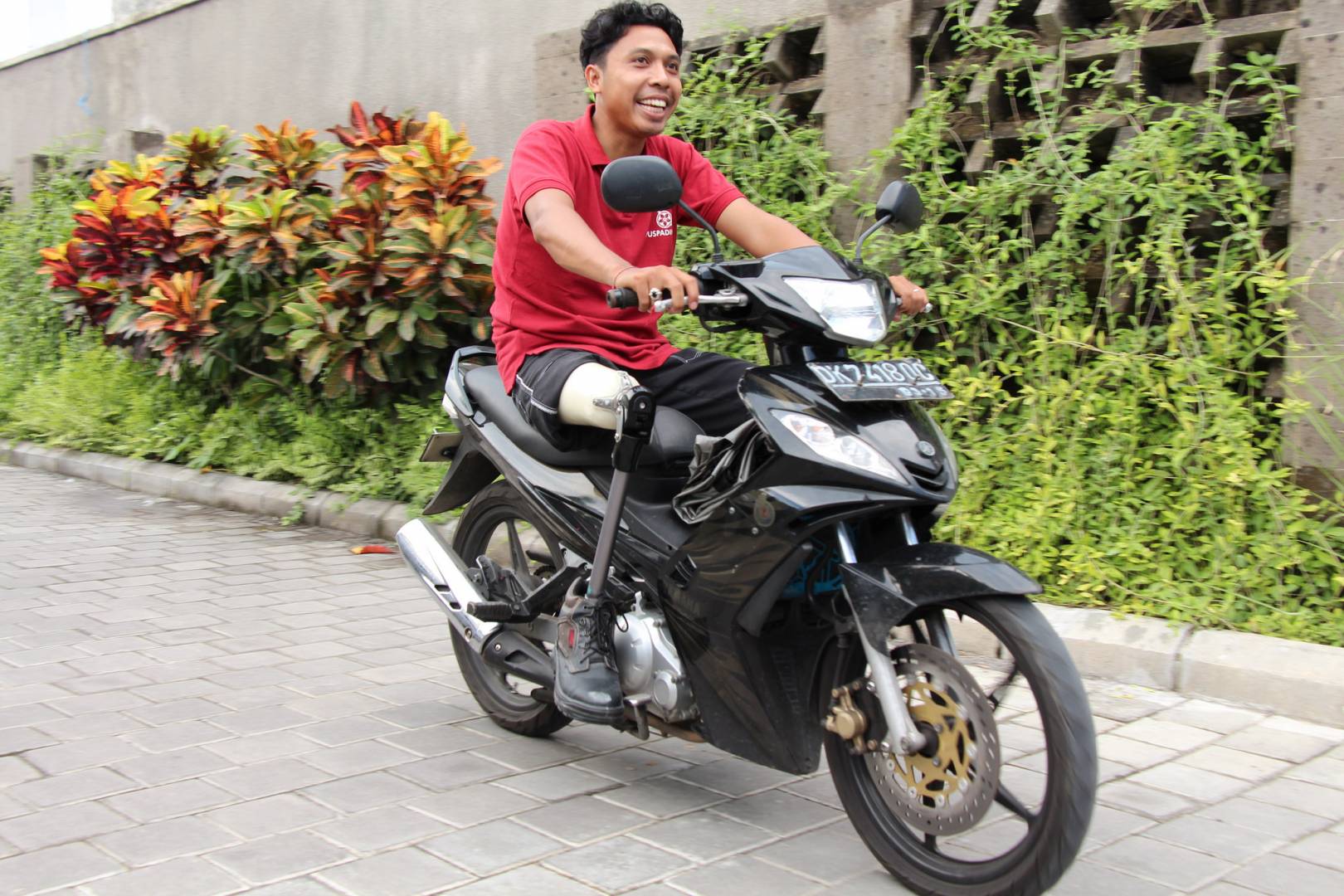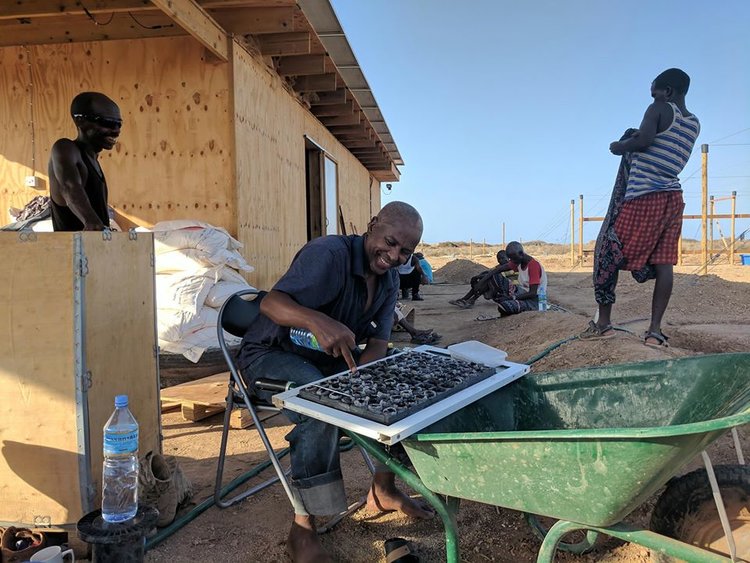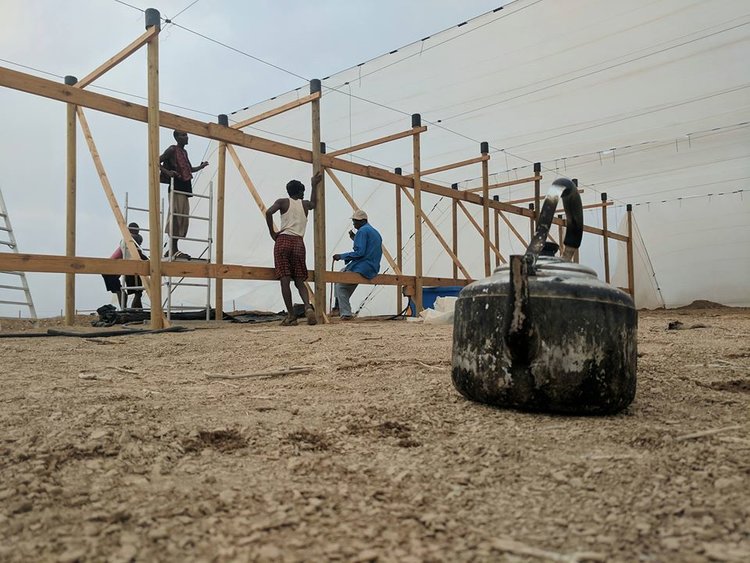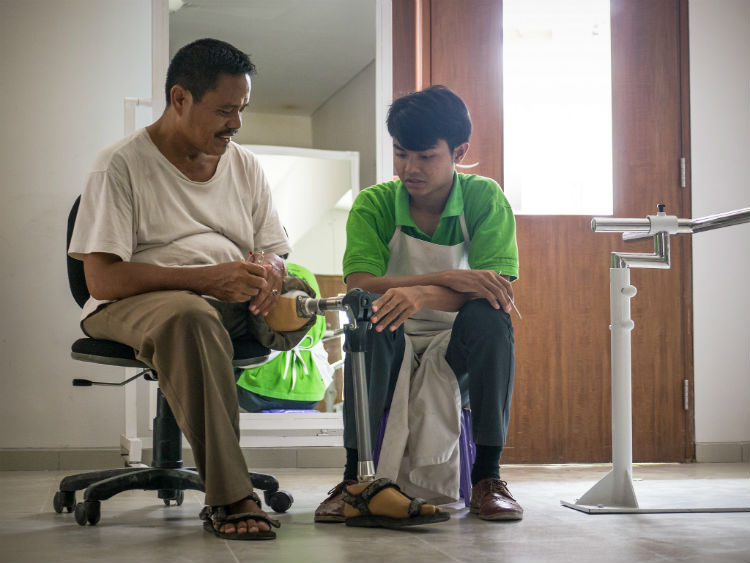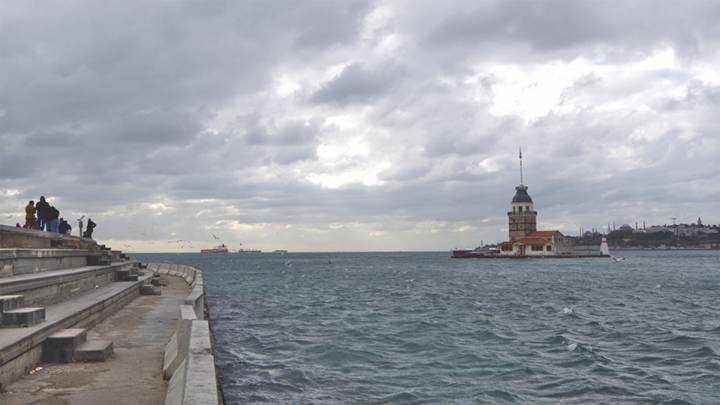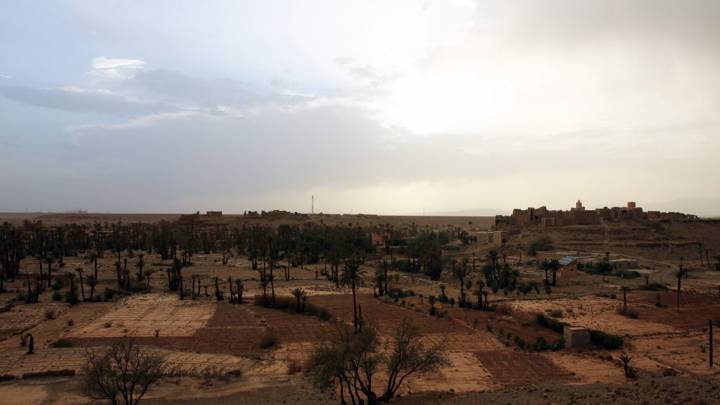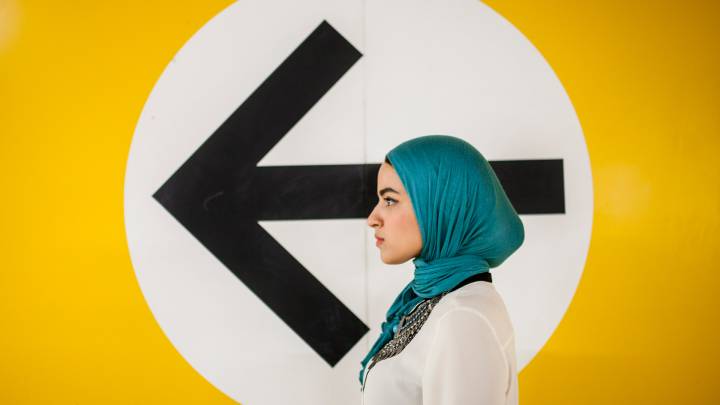Access to basic supplies remains a crucial issue for millions. Social entrepreneurs from around the world aim to tackle these difficulties and find creative solutions.
There are over seven billion people on this planet. Seven billion stories, lives, chances. There has never been a period of bigger achievements and opportunities for medical, educational and technological development throughout human history.
Still, this great leap forward isn’t reaching all equally. Electricity, clean and fresh drinking water, basic medical supplies – things that seem natural to people in the industrialised world are quite a rarity in many regions. The daily life of most people in the Western world couldn’t be more different to what a vast number of people living in the so-called global south experience on a daily basis. However, what may seem an insurmountable obstacle to many only inspires smart local minds to get active and bring change.
Start-ups are founded, and innovative projects and initiatives are created on a daily basis. Individuals get going, and communities work together to tackle issues. However, most of these projects aren’t well-known in the rest of the world. To honour these innovators and bring more attention to their bottom-up approach, the Siemens Foundation has established the empowering people. Award.
The Siemens Foundation first awarded the prize in 2016, to honour those aiming to improve basic supply in crucial areas. As different and diverse as their projects are, the social entrepreneurs and inventors nominated have one thing in common: they all seek to improve the accessibility of basic supplies and to promote self-help. Their projects are often intertwined, providing people not only with basic needs but also with long-lasting educational, social and environmental benefits.
Water as a game changer
One of those basic needs is access to fresh drinking water. According to WaterAid, an NGO monitoring the accessibility of water, 892 million people lack even basic drinking water services. This also dramatically limits the possibilities for agriculture and thus the ability to produce food. The Seawater Greenhouse initiative aims to tackle these issues with its innovative approach to autonomous water supply.
The Horn of Africa is the world’s most water insecure region, and therefore it’s the most food insecure region – which makes it in a way an insecure insecure region.
Their greenhouse uses sunlight to evaporate seawater. In the process of vaporising, the salt is separated, leaving fresh water behind. The steam is then ventilated inside the greenhouse, raising the humidity. This creates a climate that enables crops and plants to grow. As the plants are not exposed to excessive transpiration and therefore loss of water, they grow faster and more efficiently. Thus, the productivity of this new approach is many times greater than that of conventional farming in the region.
This is especially tempting as it allows agriculture in areas where it is highly needed. The project is currently being set up in Somaliland, and founder Charlie Paton quotes Bob Marley: “A hungry man is an angry man.” He continues: “The Horn of Africa is the world´s most water insecure region, and therefore it’s the most food insecure region – which makes it in a way an insecure insecure region.”
The initiative could be a game changer, as it is locally embedded and works in close cooperation with NGOs and regional administrations, integrating locals from the very beginning. They are trained in installation, maintenance and harvesting, making them more independent. Through this, the initiative not only provides people with access to a basic human need, it also creates job and income opportunities.
Basic needs
Another approach seeking to empower people by providing access to the most natural needs is the Enviro Loo from South Africa. Established in 1993, the project offers a simple but effective way to provide people with basic hygienic needs. Enviro Loo is an eco-friendly toilet that separates liquids and solids and stores them in an external container. This division enables bacteria to dissolve possible disease sources. With the support of rising temperatures caused by the sun, the liquids evaporate and the solids dissolve to as little as five percent of the original volume.
This is not only hygienic, but also connects other important fields of daily life. The small remains of the solid waste can later be transformed into biological coal or compost. This compost can then be used as fertiliser for farmers. This approach is especially innovative as it serves multiple purposes and doesn’t require any water or external disposal maintenance.
The Enviro Loo has been installed in several countries in Africa, Asia, Europe and America. However, the approach could be especially promising in the MENA region, as water supplies are already quite scarce, even more so in refugee camps. Therefore, this solution is being tested in refugee sites in Jordan, hopefully soon providing many more with basic hygiene.
To bring people back on their feet
To help people gain access to one of the most basic needs, the ability to take charge of their own life, is also the aim of D-Rev´s ReMotion Knee. The initiative literally puts people back on their feet, providing an affordable prosthetic to people too poor to buy conventional products. Many come from regions with poor medical supplies or from conflict areas.
It all started when an Indian community contacted a class at Stanford University and asked them to design an affordable and reliable prosthetic solution. Over the years, the idea developed and D-Rev improved the design and mechanics. Since then the project has reached people in Colombia, Ecuador, India, Thailand, Indonesia and many more countries.
“We want to serve every amputee who needs it,” says Krista Donaldson, CEO at D-Rev. However, they can’t be active everywhere at the same time – they only have a few units on the ground and rely on local partners such as NGOs, governments and private organisations. “The challenge with conflict zones is often that the clinicians have been impacted by the conflict.” This limits the ability to work with partners.
We want to serve every amputee who needs it.
The American company works in close connection with local clinicians and young graduates to provide additional supplemental training if needed. This cooperation is an advantage for both parties, as locals get to work in their field with high-class technology and contribute to their communities, and D-Rev gets reliable feedback from people on the ground to then improve the product.
Even though these initiatives are quite different, they all show the overall trend of people around the world getting together to empower their communities. Where others only see obstacles, these social innovators see unused potential. As a young German politician once said: in the end, obstacles are just thorny opportunities.
